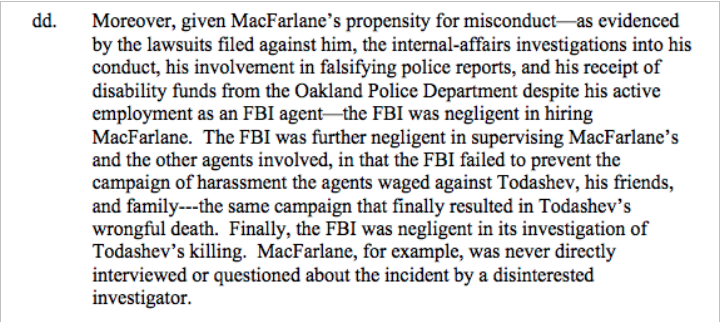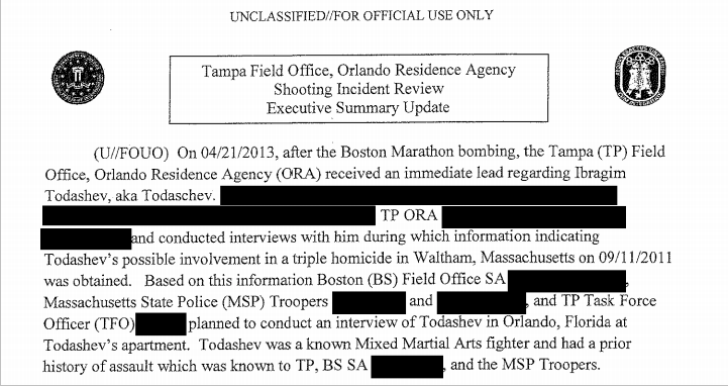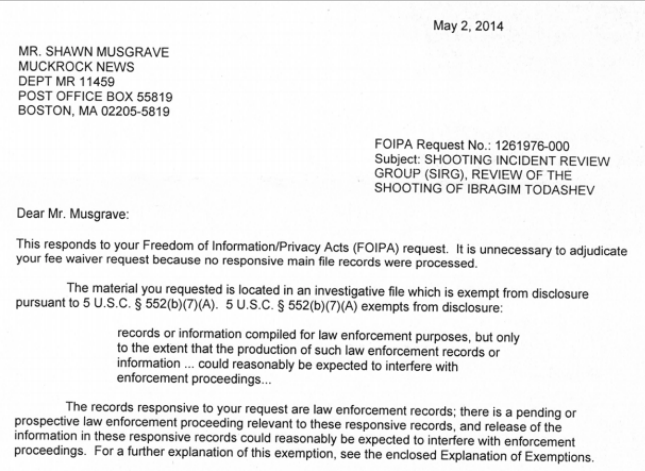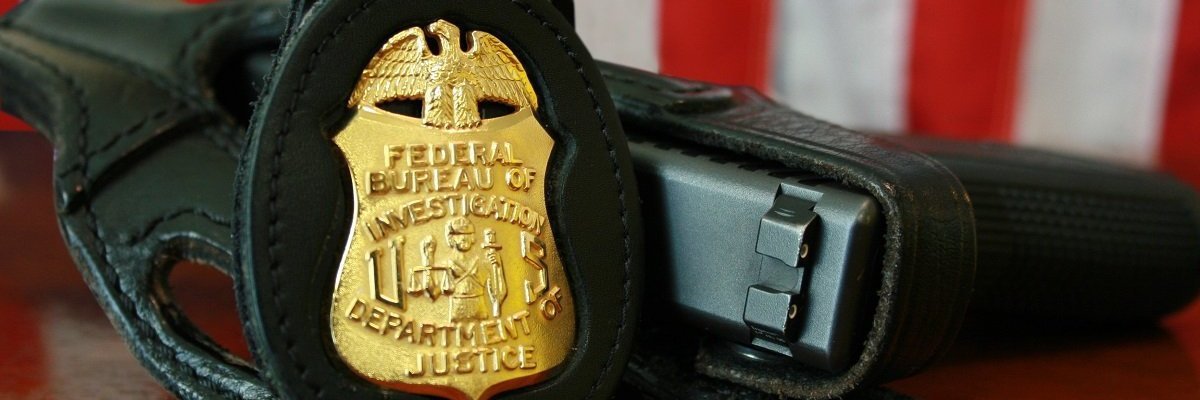The Federal Bureau of Investigation has long completed internal reviews of the May 2013 shooting of Ibragim Todashev, an associate of alleged Boston Marathon bomber Tamerlan Tsarnaev. The agent involved has been cleared from both prosecution and administrative censure, but precious few documents have emerged from the inquiries themselves.
Last week, Todashev’s family filed a wrongful death claim against the FBI that seeks $30 million in restitution. Among other claims, they allege that the FBI was negligent in its investigation following the shooting.

“Finally, the FBI was negligent in its investigation of Todashev’s killing,” declares their claim affidavit, which also notes that the agent responsible “was never directly interviewed or questioned about the incident by a disinterested investigator.”
Ibragim Todashev was fatally shot on May 22, 2013 while being interrogated in his Orlando apartment regarding a triple-homicide that took place in Waltham, Massachusetts in 2011. According to sworn officer statements, Todashev had allegedly confessed to committing the murders with Tamerlan Tsarnaev when he turned violent, striking the FBI agent with a table and brandishing a metal broomstick.
The FBI agent then shot Todashev seven times, killing him.
For months, officials tried to keep secret the names of the FBI agent and two Massachusetts state troopers who were in the apartment during the interrogation. But a technical redaction blunder in the report released in March 2014 by the Florida state attorney’s office revealed all three names.
The shoddy redactions quickly identified the FBI agent as Aaron McFarlane. Some digging revealed that McFarlane previously worked as a police officer with the Oakland Police Department, where it appears he had something of a checkered history - in 2002, McFarlane was accused twice of assaulting suspects, with Oakland city attorneys settling both lawsuits for $32,500 total. A year later, prosecutors accused him of falsifying a police report, although no charges were filed.
In light of these revelations, Todashev’s family also contends that the FBI was negligent in hiring Agent McFarlane in the first place.
Since Todashev’s death, the FBI has insisted that its handling of the shooting investigation has been by-the-book.
“The FBI takes very seriously any shooting incidents involving our agents,” Bureau officials said in a statement issued a week after the shooting, “and as such, we have an effective, time-tested process for addressing them internally. The review process is thorough and objective and conducted as expeditiously as possible under the circumstances.”
This review process entails twin internal inquiries. The first is carried out by the Shooting Incident Review Team (SIRT), which interviews witnesses and documents basic evidence. Information collected by the SIRT is presented to state and federal prosecutors, who determine whether the agent broke any criminal laws in firing.
The second inquiry is carried out by the Shooting Incident Review Group (SIRG). While similar in name to the SIRT, the SIRG assessment covers the very different matter of whether the agent followed the Justice Department’s deadly force policy.
Both processes involve review by the FBI as well as by the Justice Department’s Civil Rights Division. This dual-track process traces back to a memorandum of understanding signed by the FBI and the CRD in 2000.

The SIRT process for the Todashev shooting was completed in early 2014. In late March 2014, after reviewing evidence collected by the SIRT, the Justice Department determined that there was no cause for criminal investigation of Agent McFarlane. The same day, the Florida state attorney’s office released its report that came to the same conclusion based on independent investigation as well as SIRT evidence.
Although it was completed more than a year ago, few documents have emerged from the SIRT process.
The FBI, whose investigators wrote the report, answered in November that it could not find the SIRT’s submission to the Justice Department. In December, the Justice Department likewise claimed it could not find the SIRT’s report despite the fact that its own March 2014 determination not to prosecute was based on the team’s analysis.
Perhaps oddest of all, the Justice Department claimed the same inability to locate its own review of the SIRT’s evidence. MuckRock has appealed all three responses.
Notably, the Florida state attorney’s office report cites the SIRT by name and even includes a handful of SIRT documents within the body of the report, including the team’s executive summary.

The SIRG review to determine whether McFarlane followed agency policy has also been complete for at least a year.
“The SIRG has met on this matter,” the FBI announced in a March 2014 statement, “and found the shooting was consistent with the DOJ deadly force policy.”
An FBI spokesman contacted this week did not indicate when the SIRG review process was finished.
But the FBI rejected an April 2014 FOIA request for the SIRG’s findings on the grounds that its release might interfere with law enforcement proceedings. The Justice Department upheld the rejection upon appeal in August.

A subsequent FOIA request for the SIRG’s final report filed in October is still pending with the FBI.
There is precedent for release of shooting incident reviews. In 2013, the New York Times published two thousand pages of redacted SIRT and SIRG reports spanning 1993 to 2011.
But so far, nothing has been released from either review in the Todashev case. As they’ve done for basic records regarding use of drones, both the Justice Department and the FBI have either refused to release or claimed not to have documents that are legally required under their own policies.
MuckRock is continuing to file FOIA requests regarding the Todashev shooting and the subsequent investigation.
Image via Wikimedia Commons




